“One does not simply deploy containers to production”
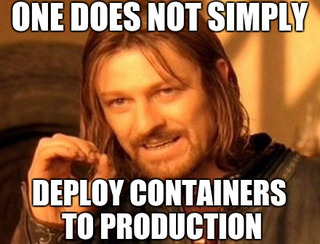
With the rising craze around the container community in Bangalore and relative lack in awareness around different container technologies like Kubernetes and OpenShift, an effort was made in imparting knowledge in this direction.
So, this time around newbies were targeted for the Kubernetes Meetup.
With the above objective, it was decided to have a Kubernetes 101 workshop at Red Hat Bangalore office on May 21, 2017 to familiarize people with concepts of Kubernetes and OpenShift and their usage and relevance as container orchestration tools for managing application deployments.
The schedule for the Meetup was as follows:
- Kubernetes 101 - Knowing the terms in Kubernetes
- Kubernetes 101 - Hands-on workshop
- OpenShift 101 - What OpenShift adds to Kubernetes?
- OpenShift 101 - Hands-on workshop
As per the schedule, we opened the floor with a talk by Hemani Katyal on Kubernetes Basics(slides), wherein she explained the need for Kubernetes, what it is, it’s architecture, why Kubernetes would be better container orchestrator and the constructs of Kubernetes like pods, volumes, labels, replications controllers, services, etc.
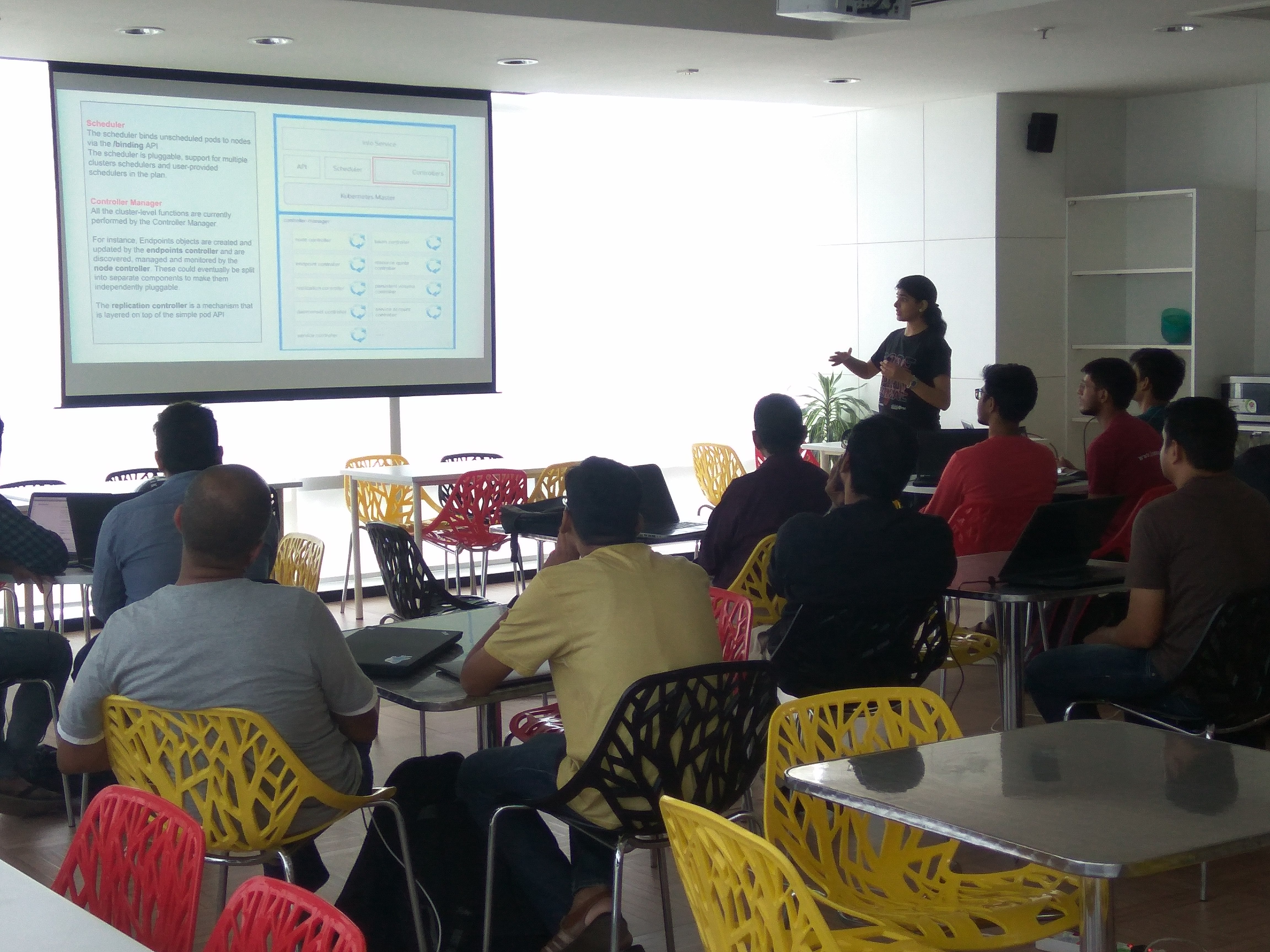
It was good to see people interested in concepts of service and the way it load balances traffic, how the labels construct is helpful in bringing in flexibility with deployments, why Kubernetes is better than other container orchestrators.
Following up with the excitement, Suraj Deshmukh, Abhishek Singh, Zeeshan Ahmed and Shubham Minglani happily volunteered to conduct the hands-on workshop. The workshop exercises were taken from Kubernetes section of katacoda.com.
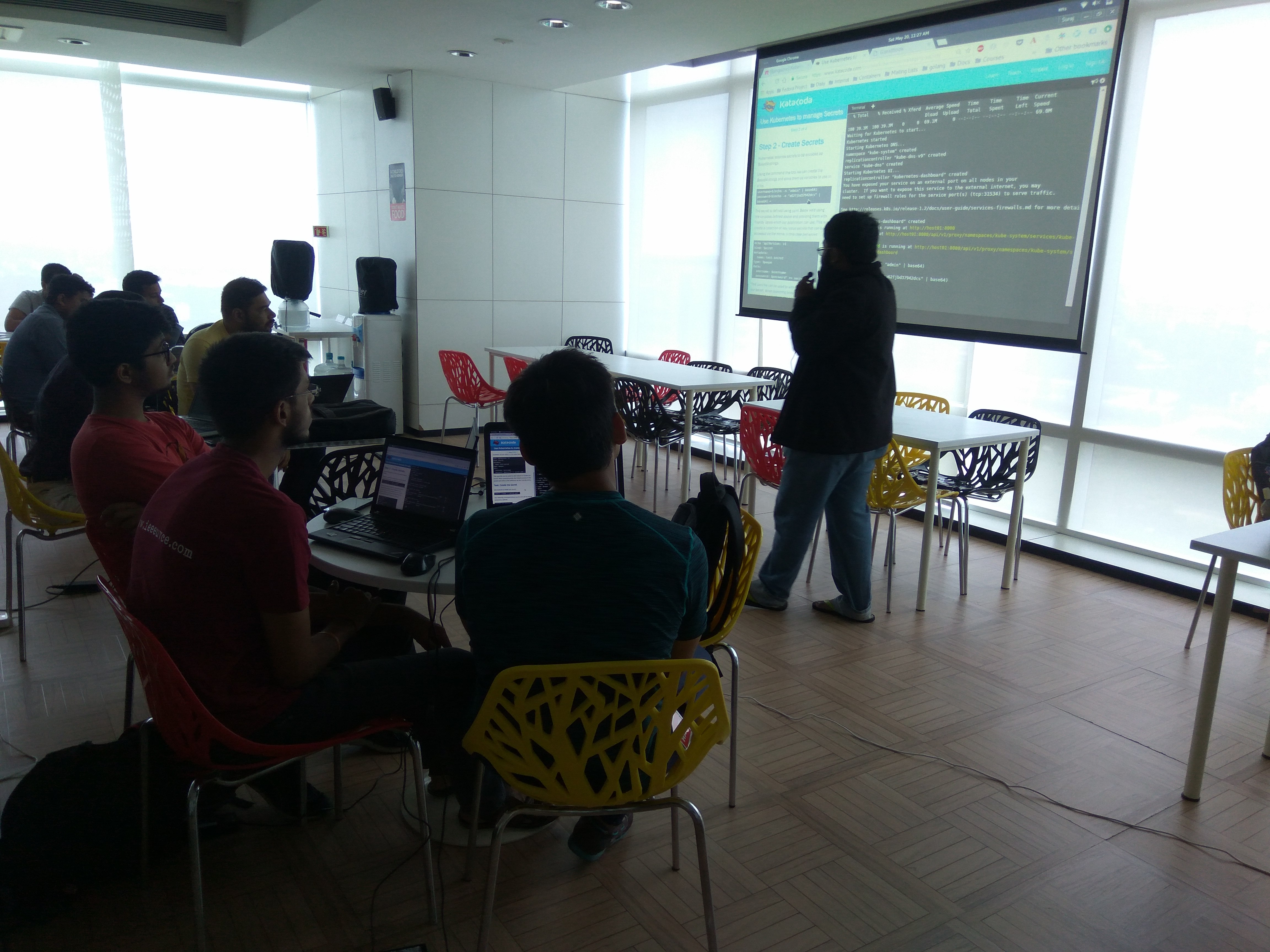
It was pleasure to have an excited and responsive audience. Questions like kube-adm functionality on CentOS, installing Kubernetes in an isolated environment without internet, how ingress works and the likes of the same were asked during the hands-on session.
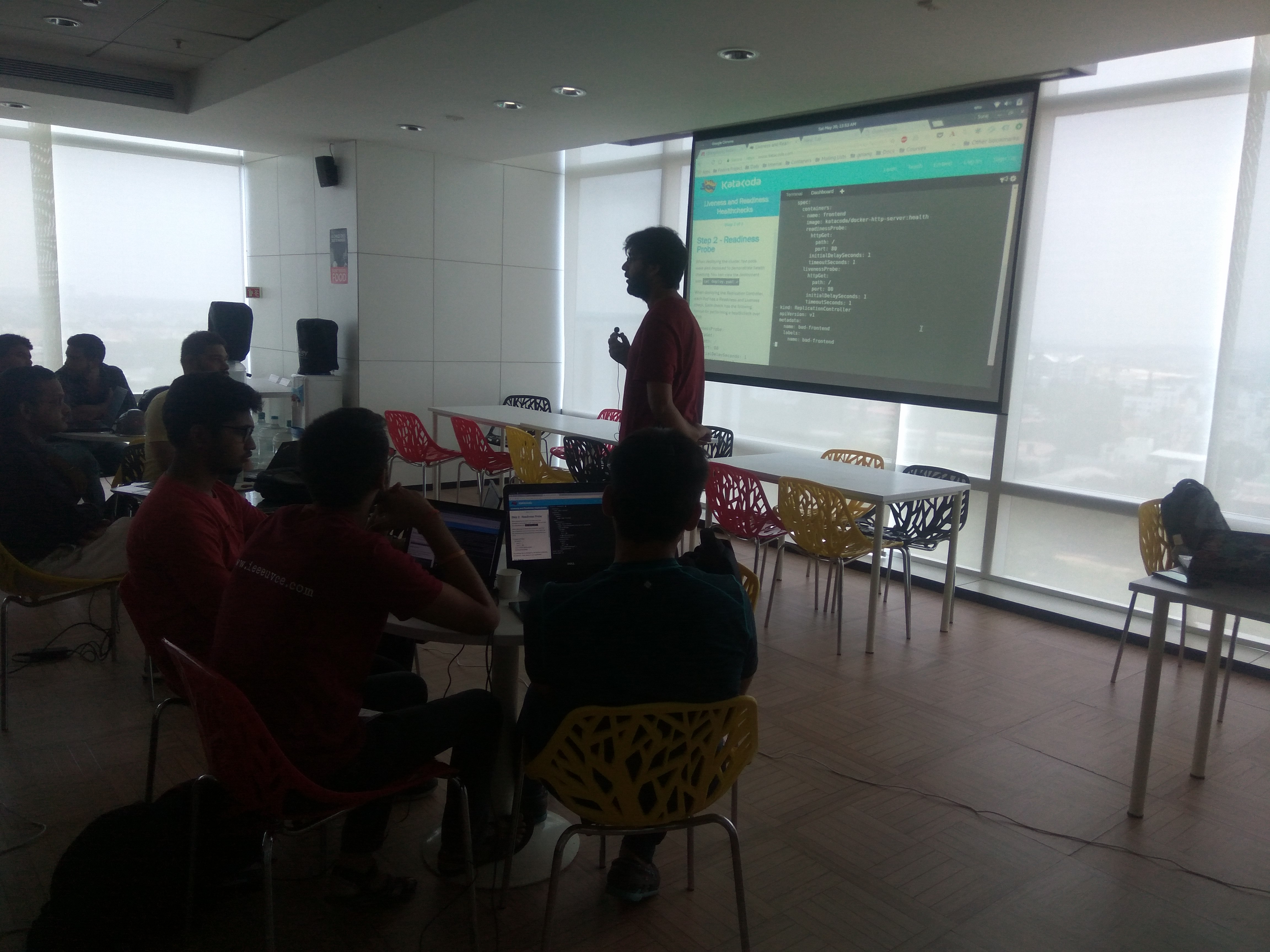
Post a quick coffee break, Abhishek Singh briefed the audience about OpenShift basics(slides), wherein he explained what OpenShift is and how it is an addon on top of Kubernetes. He touched upon topics like user management, various build features of OpenShift, container image handling in OpenShift, the way deployment fits in with build part, security, running OpenShift locally using Minishift, to name a few.
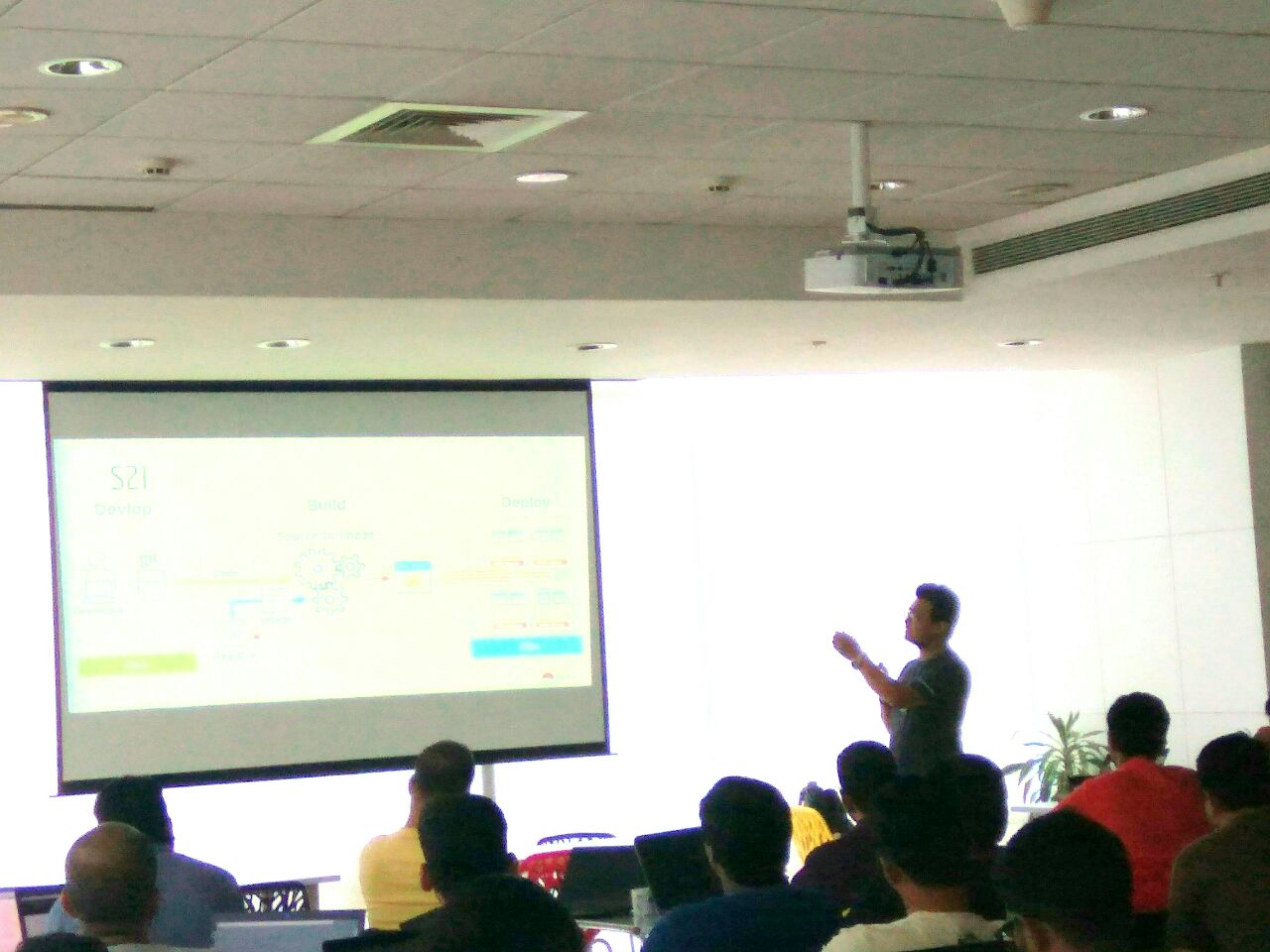
Satiating the hunger not just for knowledge but food as well, we broke for lunch.
Post which we continued with OpenShift hand-on exercises, which were again from OpenShift section of katacoda.com. Zeeshan Ahmed, Suraj Narwade and Abhishek Singh helped with the workshop exercises. There seemed to be lot of interest around topics like the source to image feature of OpenShift, if OpenShift’s router allowed UDP traffic, the difference between ingress and routes.
Red Hat’s latest announcement regarding the integration of AWS services with OpenShift also generated some curiosity among the audience.

The meetup concluded asking for feedback and distributing some swag. In feedback we received, people wanted to see some real world examples, the kind of applications that run on these platforms, and much more which are advanced topics and we would love to take up in normal meetup as opposed to a 101.
I would like to conclude here by thanking all speakers, volunteers for spreading knowledge, katacoda.com for awesome workshop material and audience for listening patiently and trying out things and making this meetup successful. And last but not the least, I would like to express my deepest gratitude to Red Hat for sponsoring the event and providing us with the venue and Hemani Katyal for making this post an awesome read.
Links
- Kubernetes DIY hands-on exercises https://www.katacoda.com/courses/kubernetes
- OpenShift DIY hands-on exercises https://learn.openshift.com/